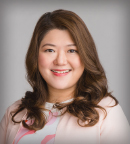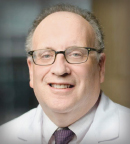
Angela Pang, MD
Globally, the population is aging, with the number of people aged 60 and older projected to double from 1 billion worldwide in 2020 to 2.1 billion by 2050. Given the aging population, coupled with the risk of cancer increasing with age, an exponential rise in cases of older adults diagnosed with cancer is predicted. Recognizing the unique needs of older adults with cancer, the founding fathers of geriatric oncology had pioneered this specialty to address the needs of this growing population.
The evolution and development of geriatric oncology programs worldwide have taken place at varying rates. In Asia, the unprecedented rate of population aging and surging cancer incidences have hastened the need for geriatric oncology services in this populous continent over the past decade. This is particularly evident in Asian countries like Singapore, South Korea, and Japan, all with developed health-care systems.
Geriatric Oncology in Singapore
In 2013, a nation-wide survey1 of cancer physicians conducted in Singapore revealed that many (61%) had never engaged the help of a geriatrician in the decision-making process for cancer treatment. In addition, fewer than half of the participants (47%) were aware that geriatric oncology assessment scales were available. What was heartening, however, was that most of the cancer physicians surveyed (90%) welcomed the introduction of a geriatric oncology service.
Since 2016, when Dr. Kanesvaran authored an article about the rise of geriatric oncology in Asia2 and the geriatric oncology programs in Singapore, there has been much progress with the increased recognition of the need in this field. The two major tertiary cancer centers in Singapore now have a formalized geriatric oncology clinical service, with geriatric oncology–specific educational and research capabilities.
The first geriatric oncology program in Singapore was initiated at the National Cancer Centre Singapore (NCCS) in 2007, with a geriatric oncology clinical service that serves more than 250 older patients with cancer per year. Annual educational geriatric oncology workshops are also held for nurses, allied health professionals, and primary care physicians.
In 2017, the National University Cancer Institute, Singapore (NCIS) introduced two pilot programs providing surgical prehabilitation prior to cancer surgery and geriatric oncology support for older adults planning for systemic therapy and radiation therapy. Supported by a philanthropic Jurong Health Fund grant, the two programs were merged in 2019 to form the Geriatric Oncology Longitudinal End to eNd (GOLDEN) program to support patients from the time of their cancer diagnosis, through their treatment process, to cancer survivorship. The program was made available in the main cancer center in the National University Hospital campus and a satellite cancer clinic in the Ng Teng Fong General Hospital campus.
GUEST EDITOR

Stuart M. Lichtman, MD, FACP, FASCO
In this program, all patients with cancer aged 65 and older seen in NCIS would be screened on their first visit with a Geriatric 8 (G8) questionnaire at triage to identify those who might benefit from a geriatric assessment. An electronic memo would be sent to their primary oncologist to highlight their potential suitability for the GOLDEN program.
All patients referred to the GOLDEN program undergo a geriatric assessment, along with a consultation with the geriatric oncology team in a one-stop geriatric oncology clinic, where they can be seen on the same day by members of the multidisciplinary team if required. Supportive care is provided to these patients until the end of their cancer treatment. The GOLDEN team also continues to follow older adults with challenging cancer survivorship issues until specialized geriatric oncology care is no longer required.
With the success of the program supporting close to 500 older adults with cancer per year, the GOLDEN program has been extended to include an inpatient program for older adults with hematologic malignancies. A consultative geriatric oncology service for optimizing the care of older adults planned for bone marrow transplantation is currently underway.
The inaugural Singapore Geriatric Cancer Symposium (SGCS) was held in 2019, further driving the interest in the field of geriatric oncology in Singapore. The second SGCS in 2022 attracted 300 participants in the scientific symposium and 250 in the SGCS public forum, dispelling myths about cancer treatment in older adults and advocating for appropriate cancer treatment in this population.
The Future of Geriatric Oncology
When the COVID-19 pandemic hit in 2020, it provided an opportunity for adaptation of telemedicine in Singapore, a highly digital nation, where the digital literacy of older adults is on the rise. A “Seniors Go Digital” initiative was launched as part of Singapore’s digital readiness vision at the height of the pandemic to equip older adults with skills such as digital tools for video calls, with digital ambassadors being made readily available for them to do so.
This initiative facilitated the adaptation of a hybrid telemedicine model3 for the GOLDEN program in NCIS. A geriatric assessment was done via telemedicine, and virtual multidisciplinary discussions were held prior to patients’ clinic visits. A hybrid telemedicine consultation allowed geriatricians and oncologists, segregated in different sites during the pandemic, to provide a hybrid physical and video geriatric oncology consultation. Scheduled phone follow-ups by geriatric oncology nurses helped to monitor patients for treatment-related toxicities and geriatric syndromes, minimizing hospital visits.
The future in the field of geriatric oncology lies in digitizing a patient’s journey, simplifying the process of identification of frailty, and tailoring treatment to benefit older adults with cancer. This foundation in the field of geriatric oncology in Singapore provides a robust platform for geriatric oncology research opportunities in the region and in collaboration with major geriatric oncology centers in the world.
Dr. Pang is a Senior Medical Oncologist at OncoCare Cancer Centre and a Visiting Consultant with the National University Cancer Institute Singapore (NCIS). She was founder and Program Director of the GOLDEN program at NCIS.
DISCLOSURE: Dr Pang reported no conflicts of interest.
REFERENCES
1. Pang A, et al: Cancer physicians’ attitude towards treatment of the elderly cancer patient in a developed Asian country. BMC Geriatr 13:35, 2013.
2. Kanesvaran R: Geriatric oncology in Asia: The dawn of a new era in cancer care. The ASCO Post, June 25, 2016.
3. Chen M, et al: Remaining agile in the COVID-19 pandemic healthcare landscape. J Geriatr Oncol 13:856-861, 2022.

